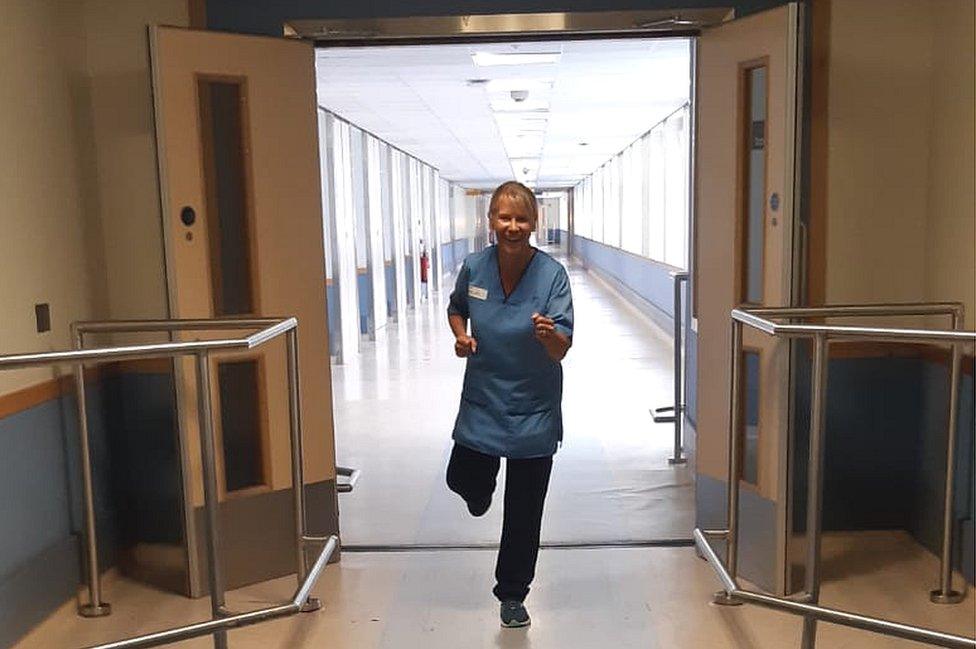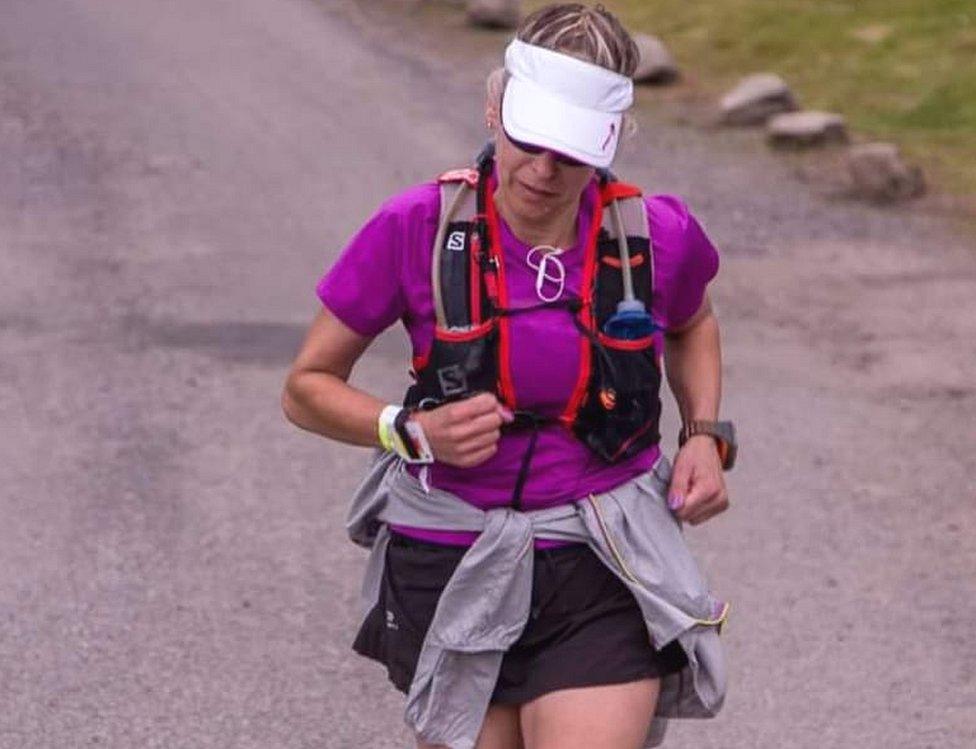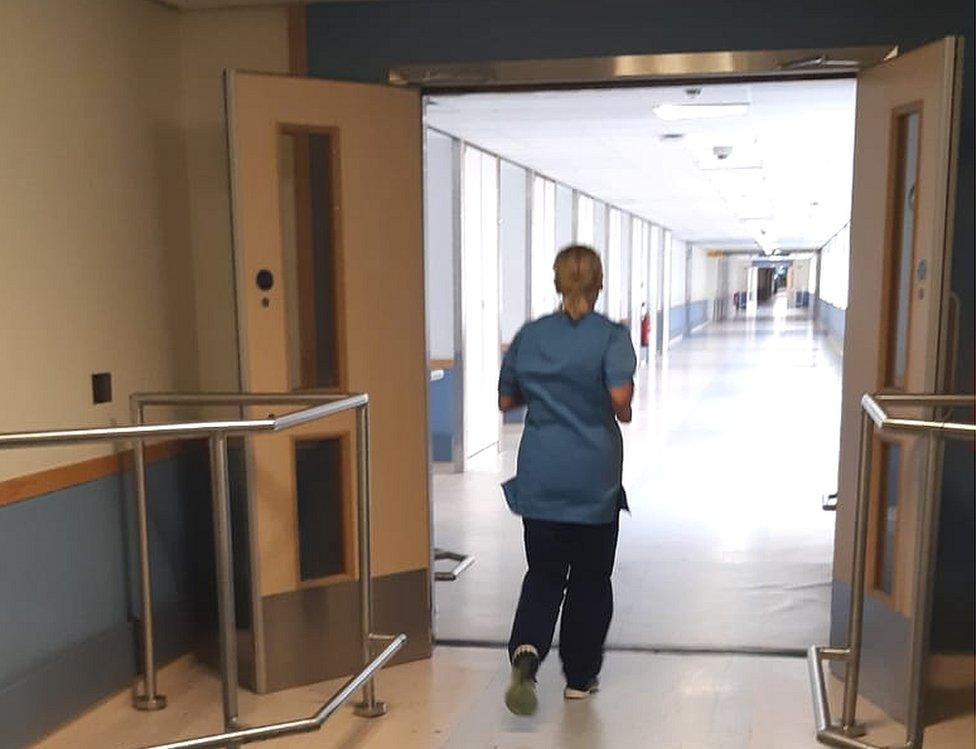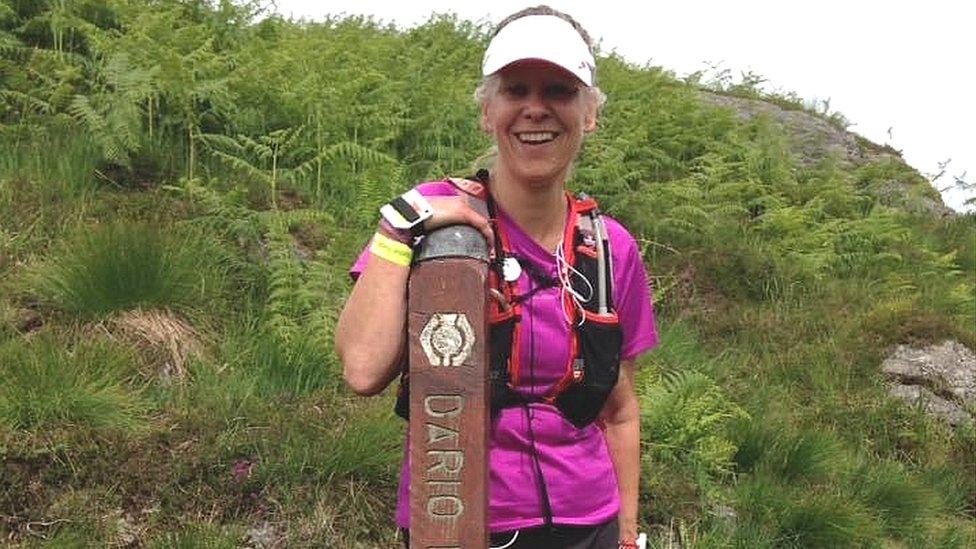Coronavirus nurse to run race in Ninewells Hospital corridor
- Published

Donna Pass will run in the corridor at Ninewells Hospital in Dundee at night
A coronavirus charge nurse is attempting to complete a virtual race of the West Highland Way by running up and down the longest hospital corridor in Scotland.
Donna Pass, 52, from Forfar, hopes to complete the 96-mile (155km) distance during breaks in her 12-hour shifts at Ninewells Hospital in Dundee.
The corridor, one of the longest in the UK, is almost a mile long.
More people have climbed Mount Everest than have completed the race.
The virtual race, which starts at 00:01 on Saturday, will differ from the ultra-marathon in that it will be held over nine consecutive days rather than over the usual 35 hours.
Runners will be aiming for three evenly-spaced checkpoints.
'Quieter at night'
Donna said she needs to run in the hospital during her night shifts because during the day she only has time to fit in decontamination showers, travel and sleep.
"I will put both my 30-minute breaks together and be able to run for five miles and have a shower in that time if I do nine-minute miles," she said.
"I will run at about 2am when the corridor is quiet.
"There is not a lot of activity at night in the coronavirus block."

Donna ran the West Highland Way in one go in June 2018
She said she would stop and walk if she came across any patients.
However, she admitted to being nervous about running in such a big, quiet hospital.
She said: "It's quieter at night so you can hear more and I hope there is no clanking of pipes because the corridor really takes you deep into the hospital. I also have to run past the hospital's mortuary room, so I will be doing that quickly.
"I don't want to be running outside at that time of night."
She was given permission to run inside the hospital by the chief executive of Tayside Trust.
Donna, who completed the "real" race in 29.5 hours in 2018, had been planning to attempt the gruelling challenge again this year after employing a coach to train her.

The corridor in Ninewells Hospital in Dundee is almost a mile long
However, the race will not take place until next year due to the lockdown restrictions.
She said: "I'm quite an emotional person so I thought I would be crying when I crossed the finishing line in 2018 but the reality was I was devoid of any emotion because I was so dead after running for almost 30 hours.
"So I decided I wanted to attempt it again by tackling it differently and getting a coach."
She trained up until the end of April when the race was cancelled.
Only about 1,500 people have completed the race, which started in 1985.
More than 4,100 people have climbed Mount Everest.

Donna will run during her breaks
Runners who complete the "real" race enter The West Highland Way Race family for life.
Donna said: "It is such a special race and you live on the memories forever. It's a very special weekend because of the people and once you take part you feel part of it for the rest of your life.
"So when I heard the virtual race was being held I wanted to make sure I could take part.
"Running it is for my mental health and wellbeing because it means I can remain in contact with the West Highland Way Race family despite the lockdown, which is very important to me."

Race director Ian Beattie, who is also Scottish Athletics chairman, told BBC Scotland he had made the virtual race over a longer period so people did not break the lockdown restriction rules of venturing too far from home.
He said: "What makes the West Highland Way Race so special is that no matter if you are the winner or if you come last you will still be treated as part of the race family.
"That is the whole ethos behind the race.
"This event brings the race family together virtually at this time."
The event finishes on Sunday 21 June.
The race was founded in 1985 and is the second oldest ultra-marathon in the world.
The West Highland Way path from Glasgow to Fort William opened in 1980.